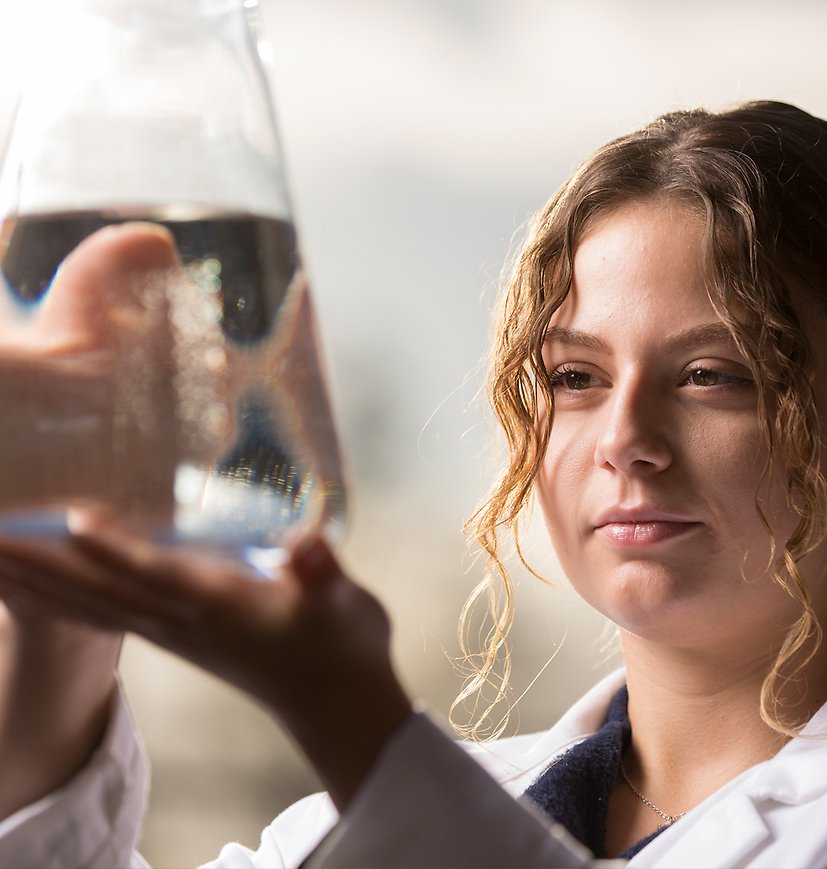Master's Programme (60 credits) in Applied Environmental Science - Ecosystem Services and Nature Resource Management
As an environmental scientist, you can help solve humanity’s major environmental challenges in the transition to a more sustainable and equal future. The Master’s Programme in Applied Environmental Science – Ecosystem Services and Nature Resource Management prepares you to develop the useful interdisciplinary solutions needed to maintain nature’s ecosystem services while society transitions towards a resource use that remains within the planetary boundaries.

About the education
Innovative environments, methods and tools
The image of Halmstad University as the innovative University spills over into education. In our education, we make use of the local surrounding with its varied nature, such as the sea, rivers, lakes and diverse agricultural landscapes and forests. Many courses in this programme require excursions and field sampling in order understand environmental concepts. You work with a multitude of different methods and analytical tools, from analysing environmental samples in the laboratory by using microscopy, to computer analyses of environmental effects on organisms, including humans. You will have access to modern study environments and a project room to enable you to create your own programme-specific study environment.
Courses and competencies in focus
The Master's Programme in Applied Environmental Science – Ecosystem Services and Nature Resource Management is a unique educational programme with focus on ecology, nature conservation, sustainable water resource management, ecosystem services and societal challenges in attaining a more sustainable future. The combination of natural science in the study of ecosystem services, ecological resilience and freshwater management is combined with a societal approach, thus putting sparing resource use for a sustainable future in focus. Knowledge acquisition is addressed in many smaller projects and seminars, enabling students to develop their academic reading, writing and discussion skills while learning to conduct independent projects. An important part of the programme is to understand how research results can be translated into practical solutions to counteract the overexploitation of natural resources and ecosystems. This way, both causes and consequences of climate change can be buffered, promoting a local and global sustainable future.
Further, students gain valuable insights into current global environmental efforts. Students may choose to focus on applied environmental issues or research and test their skills with practical tasks. In the concluding degree project students may get involved in research projects or find a theoretical solution to a actual environmental problem.
The programme is conducted in English.
Collaboration opportunities
The teachers in the programme collaborate with several external organisations and companies, and representatives from those partners will be a part of certain course topics. There are ample opportunities to network, and during the second semester you may want to choose a practical training course at a possible future workplace. Your research or development-oriented degree project will also be done either in close collaboration with researchers at Halmstad University or in collaboration with an external organisation in public administration or business.
Entry requirements
Information about entry requirements is available in the information box under the page picture. Click on "show education info" to learn more.
Programme content
The courses listed below are included in the programme starting autumn 2024.
Click on a linked course to search for the course syllabus, including course literature. Please note that you need to scroll down the page to find the syllabus.
All courses are included in the main field Environmental Science.
Year 1
Semester 1
- Ecosystem Services in a Changing World, 7.5 credits
- Ecological Resilience, 7.5 credits
- Societal Challenges and Nature Based Solutions, 7.5 credits
- Sustainable Water Resources Management, 7.5 credits
Semester 2
- Degree Project in Environmental Science, 22.5 credits
Elective courses:
- Geographical Information Systems Focusing on Ecosystem Services and Sustainable Development, 7.5 credits
- Research Training in Applied Environmental Science, 7.5 credits
- Practical Training in Applied Environmental Science, 7.5 credits
After the education
Degree
The programme leads to a Degree of Master of Science (60 credits) with a major in Environmental Science.
Opportunities for further studies
After the programme, you are qualified to apply for doctoral or PhD studies.
Career
The Master's Programme in Applied Environmental Science gives you the opportunity to work on ecological and environmental issues and/or sustainability in county councils, municipalities and other organisations or as a consultant. You can profile yourself so that your skills are particularly attractive to consultancy firms in the environmental protection sector.The programme prepares you, among other things, to work with environmental development, or as an environmental coordinator at a company or a public authority.
Contact
- Questions about entry requirements, selection and admissions: admissions@hh.se
- Questions regarding studies and career opportunities: Study and Career Guidance
- Questions about the content of the education, contact the Programme Director. Contact details can be found in the education information box.
Level:
Advanced level
Application code:
90024
Entry requirements:
Degree of Bachelor of Science with a major in Environmental Science, Biology, Chemistry or Geology including an independent project 15 credits or Degree of Bachelor of Science in Engineering with an environmental orientation including an independent project 15 credits. The degree must be equivalent to a Swedish kandidatexamen or Swedish högskoleingenjörsexamen and must have been awarded from an internationally recognised university. Applicants must have written and verbal command of the English language equivalent to English course 6 in Swedish Upper-Secondary School.
Selection rules:
Selection is made on the basis of the required educational background.
Instructional time:
Daytime
Tuition fee:
Language of instruction:
Teaching is in English.

